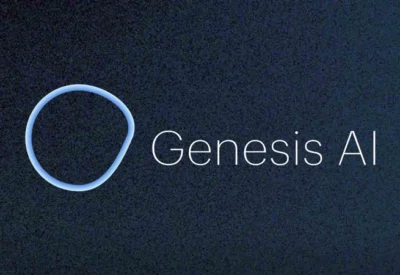
California, USA - Jul 01, 2025 (UTC) - Genesis AI, a Paris and Palo Alto-based physical AI research lab and full-stack robotics company, emerged from stealth with a $105 million seed funding round. Co-led by Eclipse Ventures and Khosla Ventures, with participation from Bpifrance, HSG (formerly Sequoia China), and tech visionaries Eric Schmidt and Xavier Niel, the funding positions Genesis AI to develop a universal robotics foundation model (RFM) and horizontal robotics platform. Founded in December 2024, the company aims to unlock unlimited physical labor, addressing the $30-40 trillion global GDP tied to largely unautomated physical tasks.
Funding Details
The $105 million seed round, one of the largest in robotics AI, reflects strong investor confidence in Genesis AI’s mission to revolutionize automation. Eclipse Ventures and Khosla Ventures, both prominent in AI and robotics investments, co-led the round, with additional support from Bpifrance, HSG, and notable individuals Eric Schmidt (former Google CEO) and Xavier Niel (French billionaire). The funds will support the development of Genesis AI’s RFM, platform expansion, and operational growth, with plans to open-source components by the end of 2025.
| Funding Round | Amount | Year | Lead Investors | Supporting Investors |
|---|---|---|---|---|
| Seed | $105M | 2025 | Eclipse Ventures, Khosla Ventures | Bpifrance, HSG, Eric Schmidt, Xavier Niel |
The Robotics Foundation Model
Genesis AI is building a universal RFM to enable general-purpose robots capable of performing diverse tasks, from logistics to household chores. Current robotic systems, like industrial arms, are limited by rigid, task-specific software. Genesis overcomes this by combining a proprietary physics engine for synthetic data generation with large-scale real-world robot data collection. This full-stack approach unifies high-fidelity simulation, multimodal generative modeling, and scalable data pipelines, aiming for robustness, flexibility, and cost-efficiency. The company claims its in-house simulation stack provides a speed advantage over competitors relying on external solutions like NVIDIA’s software.
Leadership and Expertise
Founded by Zhou Xian (CEO), a Carnegie Mellon robotics PhD, and Théophile Gervet, a former Mistral AI research scientist, Genesis AI boasts a team of over 20 researchers with backgrounds from NVIDIA, Google, MIT, and Stanford. Zhou Xian stated, “General-purpose robots powered by physical AI will define the next major chapter of human history. While digital AI has made extraordinary progress, physical AI has lagged behind. We’re here to change that.” The team’s expertise in robotics and machine learning underpins Genesis AI’s ambitious vision.
Industry Impact and Challenges
Physical labor, contributing $30-40 trillion to global GDP, remains 95% unautomated due to limitations in current robotics systems. Genesis AI’s RFM aims to enable robots to handle complex tasks requiring dexterity and real-world reasoning, impacting sectors like manufacturing, logistics, agriculture, and healthcare. The company addresses labor shortages, with 75% of global companies struggling to fill jobs. However, challenges include the complexity of real-world data collection and competition from startups like Physical Intelligence ($400M raised) and Skild AI ($4B valuation). Critics question whether a universal model can generalize across tasks, but Genesis AI’s synthetic data approach aims to overcome this.
Stakeholder Perspectives
Charly Mwangi of Eclipse Ventures said, “General-purpose robotics is the breakthrough we’ve been waiting for and stands to impact trillions in labor value across sectors. Genesis has the vision, strategy, and world-class team to define the era of physical AI.” Kanu Gulati of Khosla Ventures added, “Genesis is taking a full-stack approach by integrating best-in-class simulation data with real-world robotics data in a continuous, closed-loop system. Owning the entire data pipeline in-house gives them a unique data advantage.” These statements highlight the transformative potential of Genesis AI’s technology.
Future Outlook
Genesis AI plans to release an early version of its RFM to the robotics community by the end of 2025, fostering collaboration through open-sourcing components of its data engine. This move could accelerate progress in physical AI, positioning Genesis as a leader in a competitive field. As it navigates challenges from established players like Tesla and NVIDIA, Genesis AI’s data-driven approach and substantial funding provide a strong foundation for growth.
Conclusion
Genesis AI’s $105 million seed funding and innovative approach to physical AI mark a pivotal moment in robotics. By developing a universal RFM and horizontal platform, the company aims to automate the $30-40 trillion physical labor market, transforming industries and addressing global labor shortages. Despite challenges in data complexity and competition, Genesis AI’s synthetic data strategy, world-class team, and strong investor backing position it to lead the next wave of robotics innovation.





